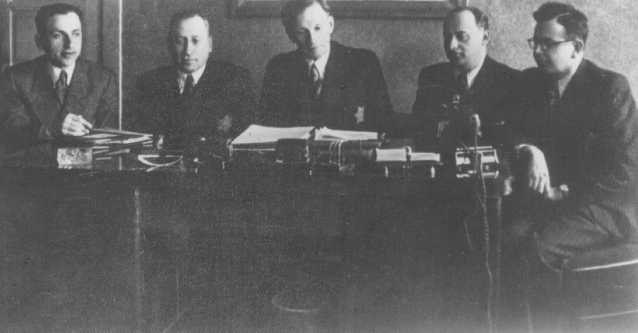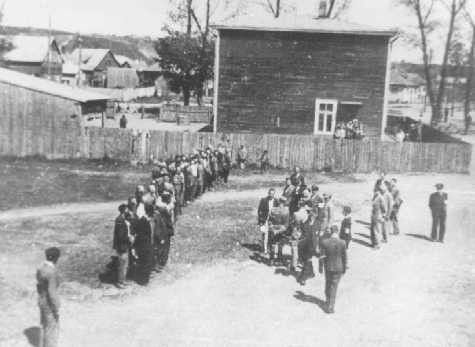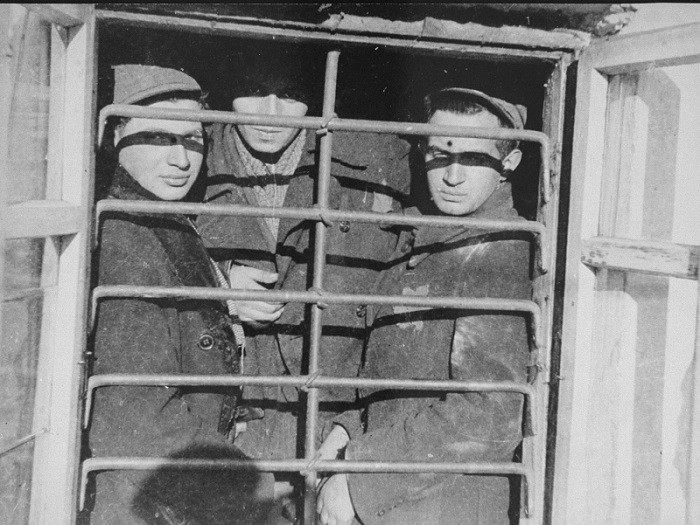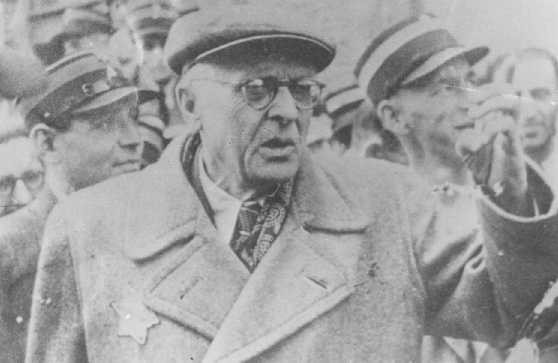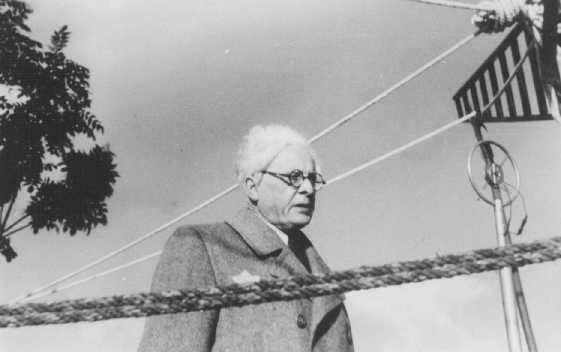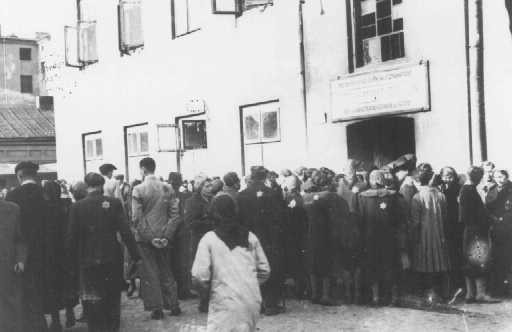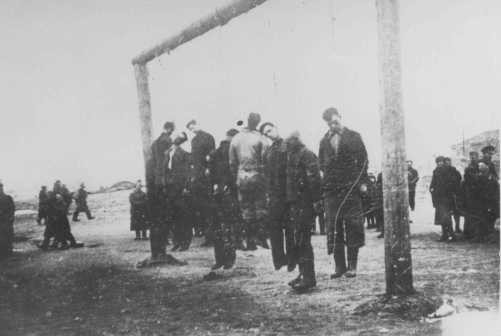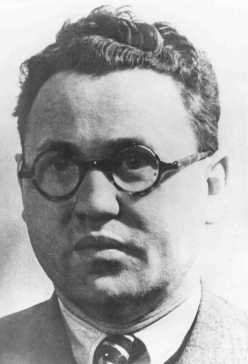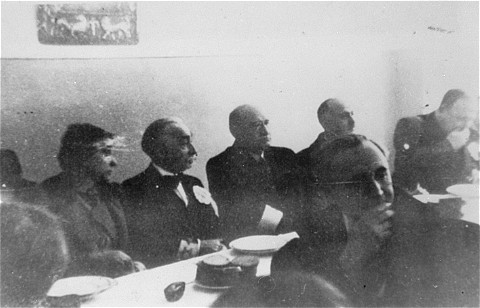
Jewish Councils (Judenraete)
During World War II, the Germans established Jewish councils (Judenraete) in the ghettos. These Jewish administrations were required to ensure that Nazi orders and regulations were implemented.
Key Facts
-
1
Jewish council members also sought to provide basic community services for ghettoized Jewish populations.
-
2
Forced to implement Nazi policy, Jewish council chairmen had to decide whether to comply or refuse to comply with German demands to, for example, list names of Jews for deportation.
-
3
The members of the Jewish councils faced impossible moral dilemmas. The role of Jewish councils remains a controversial subject to this day.
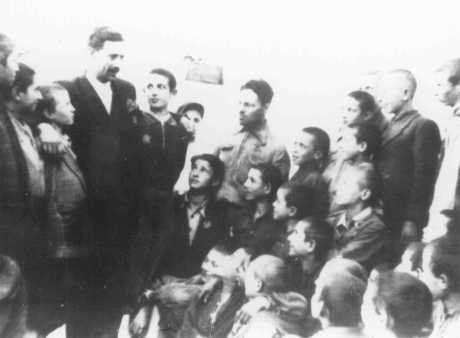
During World War II, the Germans established Jewish councils, usually called Judenraete. These Jewish municipal administrations were required to ensure that Nazi orders and regulations were implemented. Jewish council members also sought to provide basic community services for ghettoized Jewish populations.
Forced to implement Nazi policy, the Jewish councils remain a controversial and delicate subject. Jewish council chairmen had to decide whether to comply or refuse to comply with German demands to, for example, list names of Jews for deportation. In Lvov, Joseph Parnes refused to hand over Jews for deportation to the Janowska forced-labor camp and was killed by the Nazis for his refusal. In Warsaw, rather than aid in the roundup of Jews, Jewish council chairman Adam Czerniakow committed suicide on July 23, 1942, the day after deportations began.
They would come in the morning and told the Jewish council to deliver 500 men or 200 men. If the Jewish council wasn't able to deliver through their own police, they started indiscriminately to go from house to house, beat, shoot...
—Tomasz (Toivi) Blatt
Other Jewish council officials advocated compliance, believing that cooperation would ensure the survival of at least a portion of the population. In Lodz, Mordechai Chaim Rumkowski, who tried in vain to persuade the Nazis to reduce the number of Jewish deportees, urged ghetto residents to report for deportation as ordered. Rumkowski also adopted a policy of "rescue through labor," believing that if the Germans could exploit Jewish labor, deportation might be averted.
![Motto of Mordechai Chaim Rumkowski, chairman of the Lodz ghetto Jewish council: "Our only path [to survival] is [through] work."](https://encyclopedia.ushmm.org/images/large/4a64f479-f9d0-4f31-b95e-896c5ebc9e97.jpg)
Jewish council members held varied views on resistance. In Sosnowiec, Moshe Merin denounced the underground, believing that armed resistance would doom the entire ghetto. In Vilna, Jewish council chairman Jacob Gens decided to hand over underground leader Yitzhak Wittenberg, claiming that if the council did not turn Wittenberg in the Nazis would liquidate the ghetto. Jewish council opposition to resistance often prompted resentment within the underground, which sometimes accused the Jewish councils of collaboration with the Nazis (in Warsaw, the underground attacked the Jewish police).
Some Jewish council chairmen, such as Efraim Barasz in Bialystok, believed that resistance should be implemented only as a last resort—when a ghetto was about to be liquidated. In Kovno, Elchanan Elkes actively assisted the underground. In Lachva and Tuchin, Jewish council members participated in uprisings. In Diatlovo, Jewish council members organized partisans.
The members of the Jewish councils faced impossible moral dilemmas. Often forgotten in the debates over the culpability of the Jewish councils and the Jewish police are the efforts of many Jewish council members and officials in their employ to provide a variety of social, economic, and cultural services under the brutal and difficult conditions in the ghettos.
Critical Thinking Questions
What pressures and motivations may have guided members of the Jewish council in each ghetto? What dilemmas did they face?
What pressures and motivations may have guided the ghetto police, an important arm of the Jewish council?


